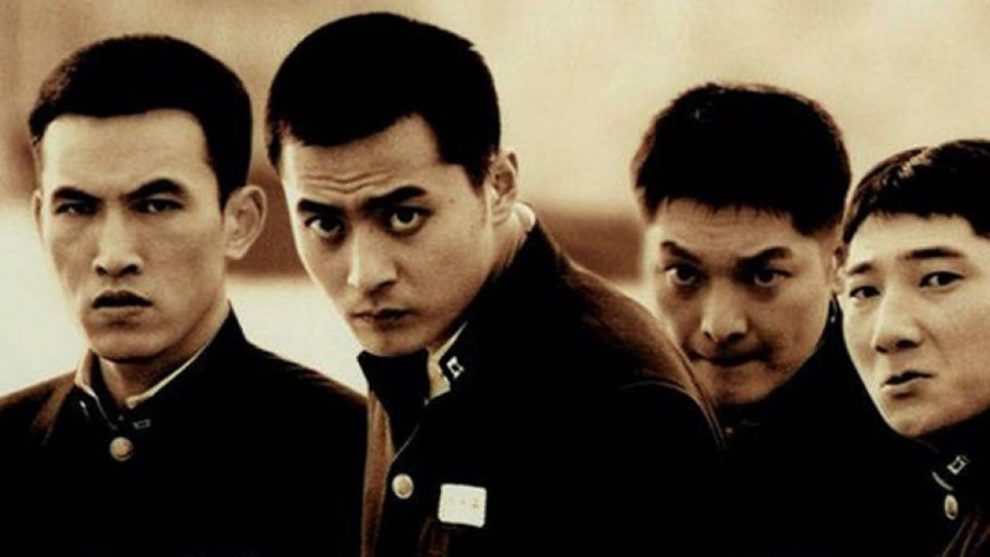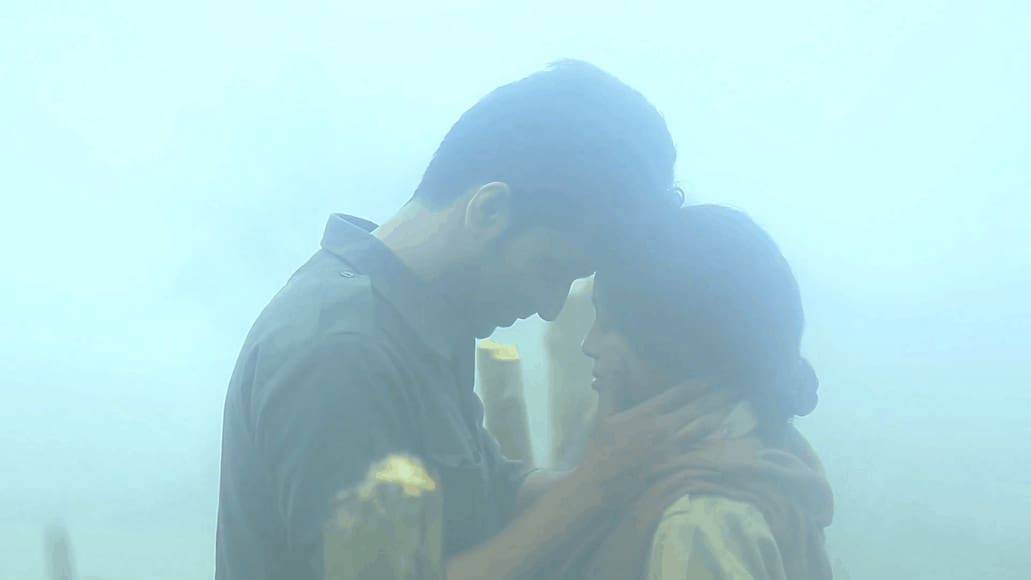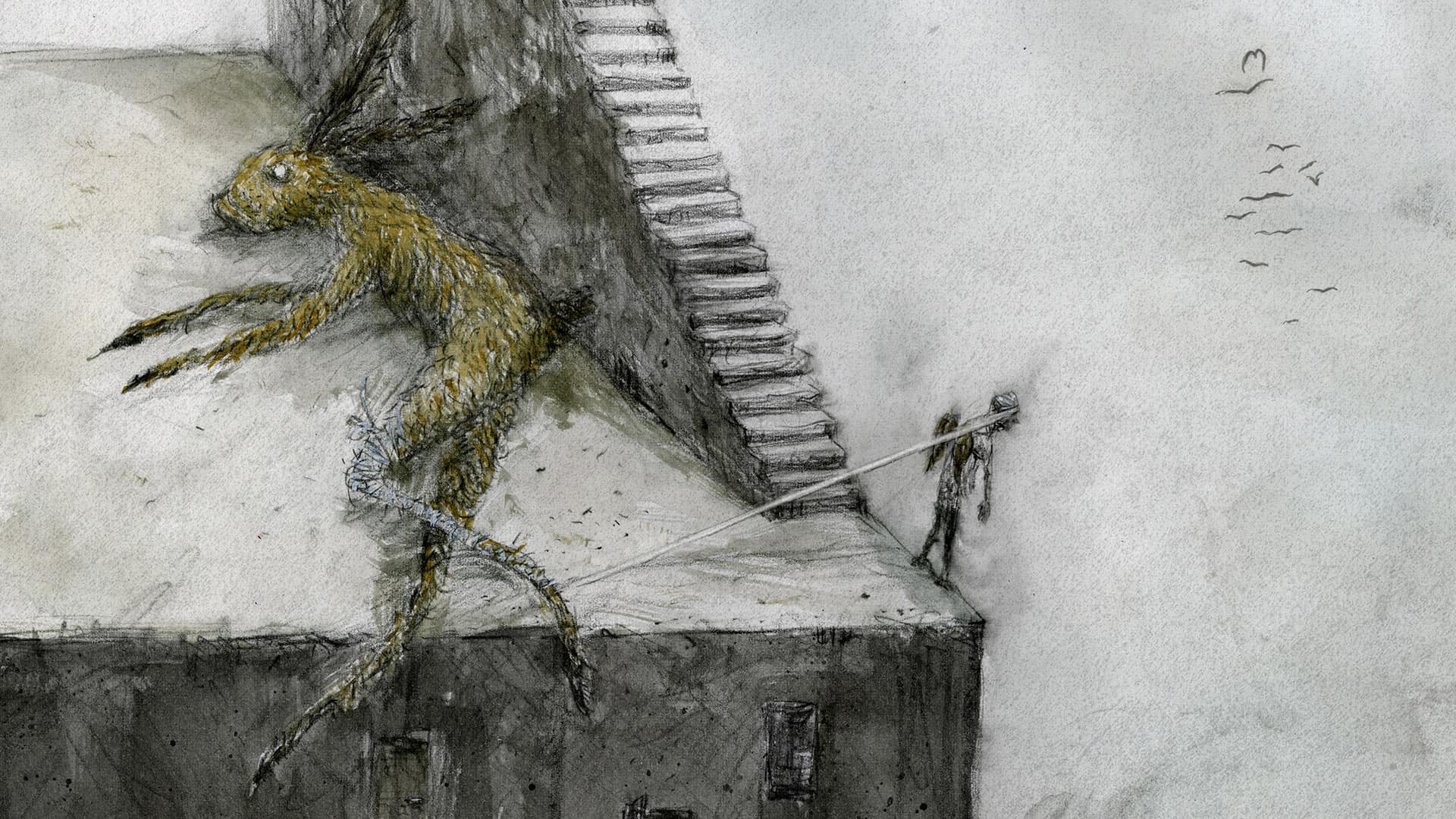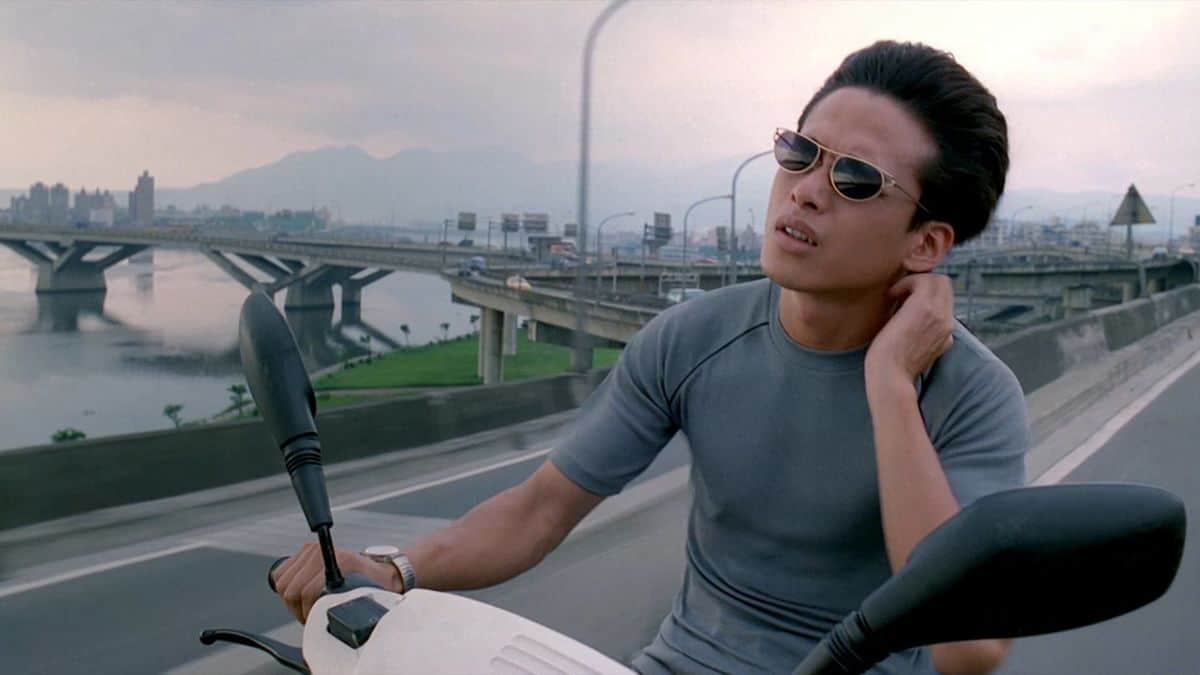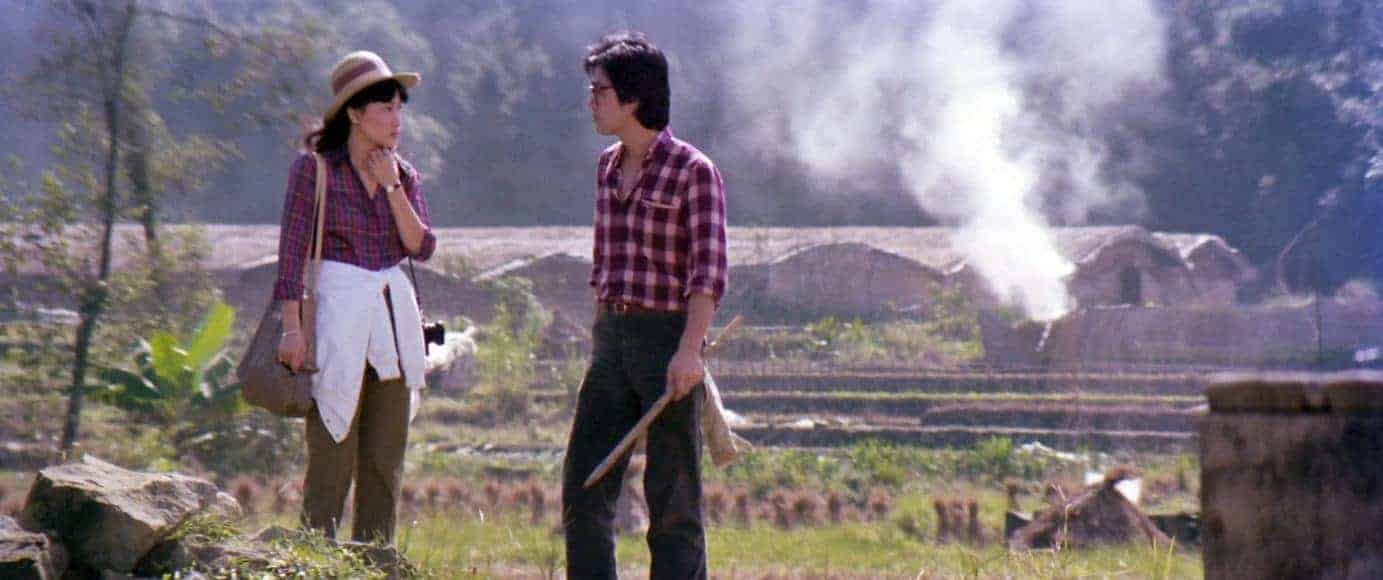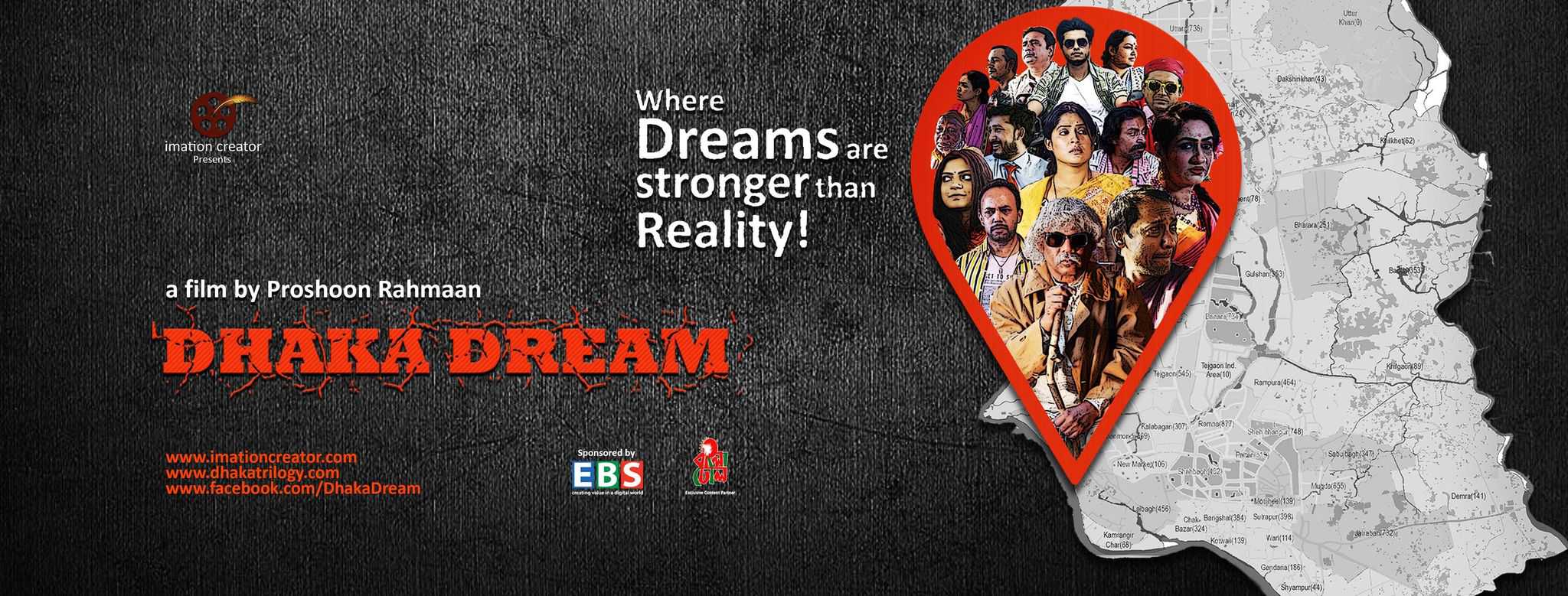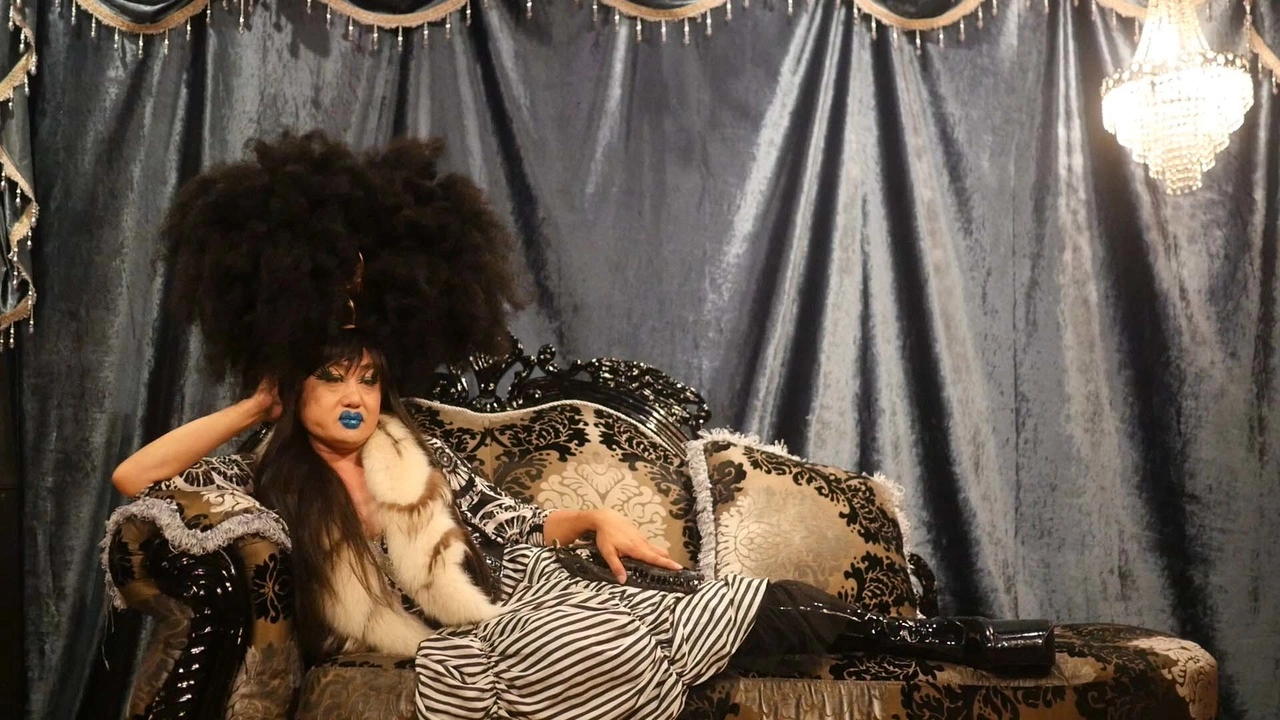Writing about “Friend” is quite intimidating. The movie has been discussed and written about a lot. What could I possibly bring to the table? What would be interesting for you, dear Reader? I'll try to give a non-lengthy overview of why the 2001 movie is interesting to watch and add my two cents (which is why you're here, I am sure).
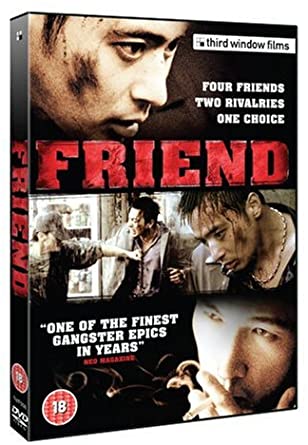
“Friend” follows the life of four friends growing up in the 1970s in the city of Busan, and becoming adults. They are from different backgrounds and have different trajectories. Joon-seok (Yu Oh-seong) is the son of a local mafia's godfather, not overly excited about it, and very loyal to his friends. He is the glue that holds the group together. Dong-su (Jang Dong-gun) comes from an undertaker family and wholeheartedly rejects it. Jung-ho (Jung Woon-taek) is the comic relief of the band. Sang-taek (Seo Tae-hwa) comes from a middle-class family, is shy and hard-working in school. He is the main narrator of the story. We follow their stories, where they take different paths that cross, uncross, cross again.
Kwak Kyung-taek's third feature falls within and embodies a key-moment in South Korean cinema, where Korean movies broke box-office records and more or less implicitly addressed certain issues. In the end of the 1990s/beginning of the 2000s, South Korea was recovering from a significant economic crisis that dramatically hit the country: the so-called ‘IMF crisis' of 1997. At that time, a lot of films featuring men facing existential crisis in a violent environment flourished. The environment is as violent physically (there's a lot of fighting) as socially/psychologically (main characters struggle with a capitalist, quickly changing society). Moreover, there is often a sense of determinism and bitter-sweetness – elements that can also be found in more recent releases, such as “Parasite”. Indeed, “Friend” was a huge box-office success and it does focus on men dealing with social, psychological and physical violent environment, and offers a somewhat deterministic vision of life.
But we don't mention “Friend” as a should-watch just because it allows a better understanding of Korean cinema. It is also because it is a good film (Yes, we are like that at AMP, always wanting to provide you with the best). The story – written by the director – is absorbing, sad, intense and well-paced. Interestingly, there is a shift happening during the movie: if Sang-taek is the one telling the story, and hence diving us into the narrative with his subjective point of view, Joon-seok ends up being the ‘real' main character.
The time frame the story happens (the 1970s up until the 90s in a country (and city) very rapidly developing, at the heart of many big political and social changes) has its significance. The time and space environment creates tension in itself – tensions that are reflected on the characters' mental state and actions, who are struggling with their condition of men evolving in an imposed hyper neo-capitalist system (that relies on excluding people) more than with their human conditions. Anxieties come from the fact that they are stuck in a system that they don't embrace but also cannot abandon.
The acting is flawless – although I must admit the supposedly younger look of the actors when the characters are in high school isn't always believable. The four main characters have been very well casted, and all actors bring something to their characters. Yu Oh-seong (Joon-seok) confirms here his status of established actor of the end of 1990s/beginning of 2000s (he was in “Beats”, but also “Spring in my hometown” and “Attack the Gas Station!”). His portrayal of Joon-seok allows the character to not fall into any clichés. It is nuanced, complex and human. This is what makes him appealing and the audience wishing to follow him. This participates to eventually shift the viewers' main interest from Sang-taek to Joon-seok.
Fighting scenes are key to the film – they reinforce the film genre, help build up the plot, reflect the characters' inner lives, help build up the pace. They don't fall in the trap of being too long, are thrilling yet realistic. This wouldn't be possible without a solid cinematography and editing. In fact, good and inviting cinematography and editing are a constant throughout the film. DP Hwang Ki-seok makes various antithetical choices to get us as immersed as possible: handheld camera and wide shots during action scenes, shot/reverse shots during intense conversations, wide shots when the group of friends is together – reinforcing the idea of them being a whole with shared deep connection. What is more, Hwang chooses color filters that give a nostalgic touch to the images. That is in line with the bitter-sweet feeling of years going by, people evolving and growing up, etc emanating from the feature.
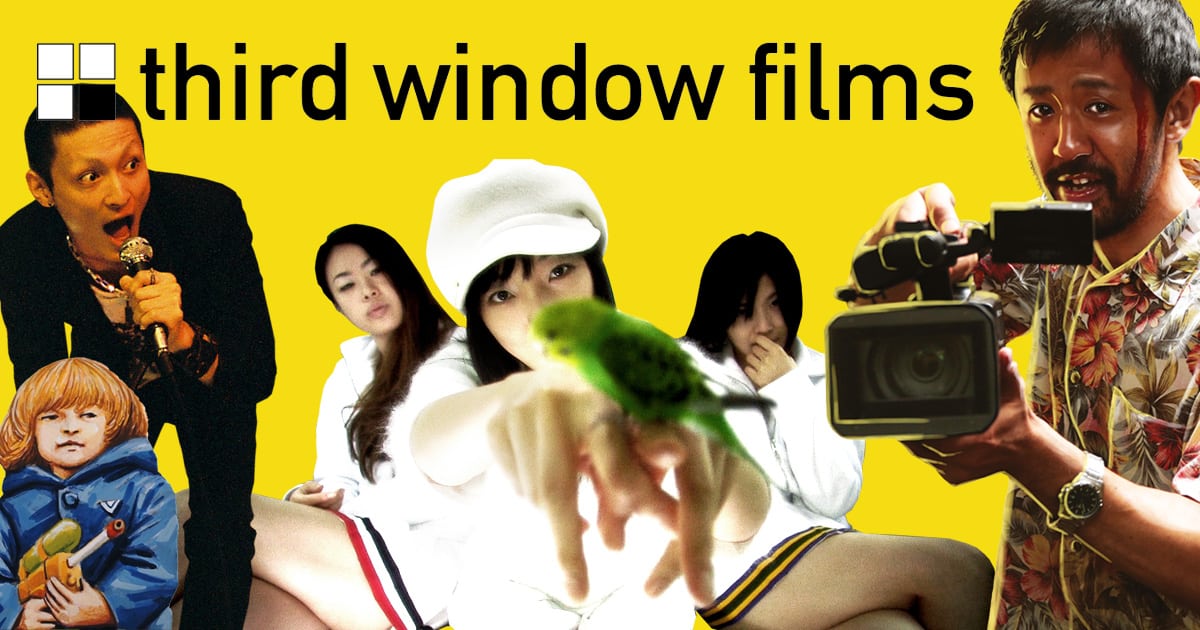
Editor Park Gok-ji was already quite established in 2001: she had already worked with Kim Ki-duk and Hong Sang-soo and is behind the editing of “Shiri”. She kept on a very impressive and prolific career: the woman now has 94 films credited (!). In “Friend”, she brings her knowledge and know-how to make the invisible cut – we, as viewers, are not aware that there is editing involved. The fighting scenes are fast paced, but the film is overall mid-tempo. A slow tempo wouldn't have worked considering how many years had to be covered, but it's not a pure action movie where we go from one fighting scene to the other and never delve into character's inner lives.
Even if I am not fond of drawing a line, the movie reminds of something more auteur-ish and independent. Hence, if you are in a mood for ‘I am an intellectual who watches serious foreign movies', don't be afraid to give “Friend” a go. Yes, it was a box-office hit – which shows that it had a cultural impact and answered a need from the audience – and yes, you'll still be able to show off at cheese & wine tastings (I've actually never been to one but that is the atmosphere I imagine).
Would I watch the movie every day, or when I feel down? Probably not. It is sad, and there are not enough female characters. But I would love to watch it again on the big screen, and I would watch it from times to times because it gives me references and deeper understanding of South Korean cinema (+ it's a pretty good and engaging movie).


